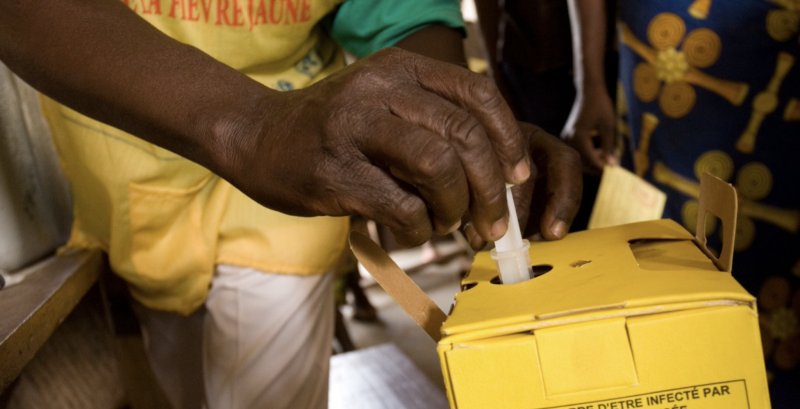
Fortune favours the prepared: Fixing the COVID-19 waste problem to build back better and tackle climate change
Communicable Diseases
February 7, 2022
When COVID-19 reached Lao People’s Democratic Republic in early 2020, the country faced a waste problem — the volume of hazardous waste from its response to the pandemic, including masks and other personal protective equipment, quadrupled from 0.5 kilograms to 2 kilograms on average per person per day.
But it also saw an opportunity. By then, the government and various sectors were years into efforts to shore up Lao PDR’s health system against climate impacts that were already making themselves felt — among them longer and lengthier dry periods that affect water quality and quantity, depriving rural healthcare facilities of water needed for adequate hygiene and sanitation for four to five months a year.
Since 2014, the Ministry of Health had been prioritizing the development and implementation of water, sanitation and health (WASH) policies and strategies and basic health facility environmental standards and health care waste management regulations.
But, many other countries, Lao PDR faced challenges accessing funding for their climate and health plans.
“WASH has had challenges as it require an investment for infrastructure and regular operation and maintenance. During 2020, funding to support COVID responses globally has created opportunities to fund investments in issues such as WASH that are both longstanding national priorities and important components of the pandemic response”, said Dr Phonepaseuth, Director General, Department of Hygiene and Health Promotion, MOH, Lao PDR.
The funds unlocked by the pandemic led to rapid expansion of Lao PDR’s WASH and waste efforts and the introduction of a comprehensive package of interventions for making hospitals “safe, clean, green and climate resilient”. WASH and environmental health indicators were integrated into regular health systems monitoring. This allowed for rapid identification of gaps and for the health sector and healthcare facility managers to be held accountable for maintaining adequate WASH services and promoting sustainable technology solutions.
One significant, climate-related intervention was the installation of 76 autoclaves, which use less energy than incinerators and do not emit harmful pollutants (for example, dioxins and furans), coupled with equipment for safe segregation and storage and the training, supportive supervision and ongoing monitoring necessary for long-term sustainability.
Like other developing countries, we face challenges to manage many different types of plastic waste, masks, PPEs, vaccination waste and laboratory waste. The volume of waste increased, and tonnes of waste was generated from quarantine and isolation places,” Dr Phonepaseuth said.